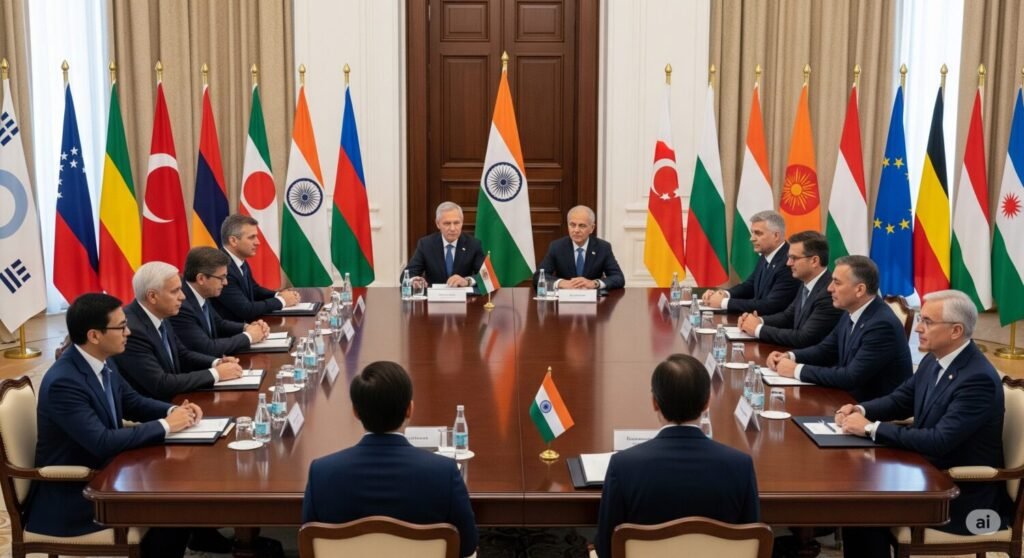Explore India’s bold foreign policy, its refusal to yield to nuclear threats, and its strategic responses to cross-border challenges.
A New Era of Resolve
In an increasingly complex global landscape, nations often find themselves navigating delicate diplomatic waters. However, some principles remain non-negotiable. India, a rising global power, has made its position unequivocally clear: it will not be swayed by threats, especially those involving nuclear deterrence. This steadfast resolve, articulated by External Affairs Minister S. Jaishankar, signals a new era in India’s foreign policy, emphasizing national security and a firm stance against terrorism.
Beyond Nuclear Blackmail
For years, the specter of nuclear capabilities has been used as a deterrent in international relations. However, India is challenging this narrative, asserting that such threats will not prevent it from defending its people and interests. Jaishankar’s recent statements highlight a crucial shift:
- No Impunity for Terrorists: India is committed to holding terrorists accountable, regardless of their backing.
- Targeting State Sponsors: Governments that support and finance terror outfits will no longer be spared.
- Defending National Interests: India will take necessary actions to protect its citizens, even if it means responding forcefully to cross-border aggression.
This bold declaration underscores a commitment to proactive defense rather than reactive appeasement, a message resonating strongly with a populace tired of proxy warfare.
Rebutting Misconceptions: The Trump Angle
The conversation around international relations often involves various interpretations and claims. Recently, President Donald Trump suggested that trade talks were used to de-escalate a past India-Pakistan conflict. Jaishankar, however, swiftly debunked this, emphasizing that trade negotiations between New Delhi and Washington operate independently, driven by professional trade-offs and economic realities.
Furthermore, he shed light on a critical moment, recalling a conversation where India’s Prime Minister Modi remained resolute against Pakistani threats of a “massive assault,” leading to a swift Indian response. This anecdote highlights India’s commitment to bilateral dealings with Pakistan and its refusal to be pressured by external interventions or threats.
Economic Warfare and Strategic Responses
The concept of “economic warfare” has gained prominence in modern conflicts. Jaishankar pointed to the April 22 terror attack in Pahalgam as a clear example, describing it as an attempt to cripple Kashmir’s vital tourism industry. This incident, part of a long pattern of cross-border attacks, fueled a national sentiment of “enough is enough.”
India’s response was decisive. Jaishankar noted that Pakistan-based terrorist organizations often operate openly, with “corporate headquarters” in populated towns. In retaliation for the Pahalgam massacre, India launched Operation Sindoor, striking at terror infrastructure within Pakistan and Pakistan-occupied Kashmir, targeting hotbeds of terror in places like Bahawalpur and Muridke. This strategic action demonstrates India’s capability and willingness to dismantle threats at their source.
A Message to the World
India’s clear and resolute stance sends a powerful message to the international community. It emphasizes that while diplomacy is crucial, national security and the protection of its citizens are paramount. The nation’s refusal to succumb to nuclear blackmail and its proactive approach to counter-terrorism reflect a maturing foreign policy that prioritizes strength, sovereignty, and swift, decisive action when faced with aggression. This firm resolve is not just about defending borders; it’s about upholding the principles of justice and accountability in a world that demands unwavering leadership.









